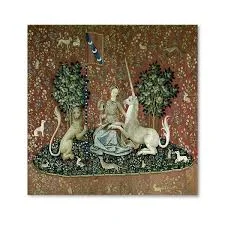Listen
Voices, voices. Listen, my heart, as only those saints ever listened --
so that the enormous response
lifted them clean off the ground but they (impossible ones!) didn't even notice. That's how they listened.
Not that you could bear the voice
of God, not by a long shot.
But hear, at least, the wafting,
the uninterrupted news,
that forms out of silence......
-- Rilke, Duino Elegy I
Dear All,
Emptiness, silence, stillness, are not empty for Rilke. They stir with purely spiritual presences, for example the souls of humans who have died young. Since these presences emerge in silence, it is not with the ears that we listen for them but with the heart.
His sense of entities that speak from beyond sense perception (he calls them beasts of silence in another poem) bears a remarkable similarity to what the Vipassana teacher, Achaan Chah, said about mindfulness practice:
Then your mind will become still in any surroundings, like a clear forest pool. All kinds of wonderful, rare animals will come to drink at the pool, and you will clearly see the nature of all things.
Prayer in our sense is listening in a certain direction. We listen into a silence that no distractions or noises -- not even the words of our own prayer -- can disturb.
Next week, we'll start applying a directed listening to the 23rd Psalm. Remember that "The LORD" who is my shepherd is not a lord, but YHWH, the urge or desire or love that makes all worlds possible. The Psalm passes from meditation to prayer at the moment when it goes from third to second person address: from "is my shepherd; maketh; restoreth" to "Thou art with me."
Along the way, we'll necessarily sharpen our felt concept of a person, an entity, a being, a someone. If there is no sense-perceptible form, after all, how do we recognize the divinity in question?
all blessings to all,
Michael





